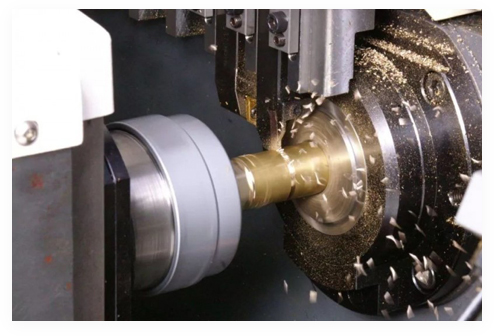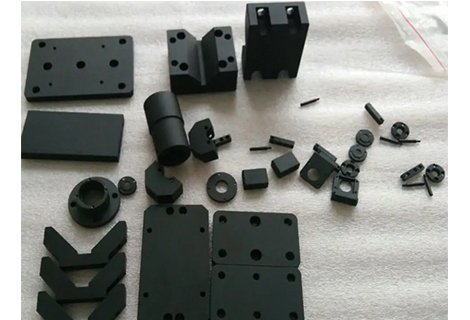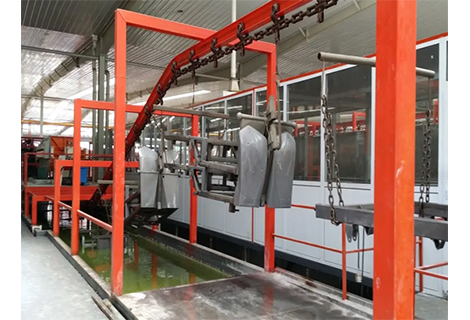There are more than 85,000 commercial options for plastics listed in materials databases. Among them, there are 45 polymer families that can be roughly divided into two categories: Thermosets and Thermoplastics. We focus primarily on the latter category, offering hundreds of engineering thermoplastics through our Express Injection Molding service (see Figure 1). In addition to our in-stock plastics, we can handle many other plastics provided by our customers.
It can sometimes be a difficult task to narrow down this extensive list of materials. For this reason, we have created a guide that lists the benefits and applications of some of the most common injection molding materials. By choosing the right material, you can improve the form, fit and function of your parts - a resolution we can all take to heart in the new year.
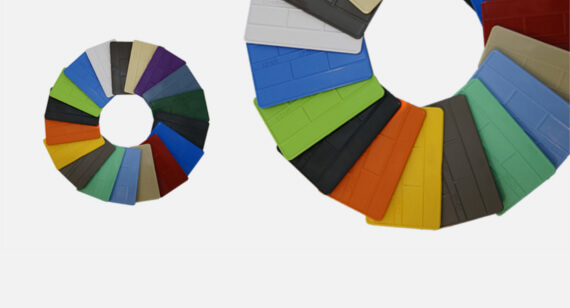
Figure 1: Richconn offers a range of materials with varying degrees of strength, elasticity, resistance, lubricity and other properties.
Advantages: ABS is a tough, impact-resistant plastic that is widely used in many different industries. It has low shrinkage and high dimensional stability and has good acid and base resistance. ABS is a good choice for consumer products, such as hand tools. It is also relatively inexpensive.
Applications: visible parts, hand-held devices, housings and moldings for power tools, remote controls, computers, telephone components.
Considerations: Injection molded ABS parts are susceptible to weld lines and can have sink marks and voids in thick areas. Sink marks can be reduced by using an ABS-PC compound. ABS also combines well with PC parts.
Advantages: PC is tough and extremely impact resistant, has low shrinkage and good dimensional stability. This clear plastic is available in various levels of transparency. PC has good heat resistance and is well suited for surfaces with high cosmetic requirements.
Applications: Lenses, indoor and outdoor lighting, cell phone housings, electrical components, medical devices, bulletproof glass.
Considerations: Thick areas of parts can be prone to voids, air pockets and sink marks; PC parts also have poor chemical resistance. An ABS-PC blend is a good alternative for opaque parts with these issues, and acrylic (described below) is another option for parts with thick geometries.
Advantages: There are many types of PPA, or Nylons (PA) - (4, 6/6, 6, 6/10, 6/12, 12, etc.), each offering its own advantages. Nylon parts usually have high strength and heat resistance, especially when reinforced. In addition, they are resistant to chemicals except strong acids and bases. Some types, such as nylon 6/6, offer great hardness, stiffness and abrasion resistance. Nylon 6 is extremely hard and durable at low temperatures, but nylon 6/12 has better impact resistance.
Applications: thin-walled features, combs, spools, gears and bearings, screws, structural parts (with glass), pump parts, engine compartment parts, cameras.
Considerations: Nylon can be more susceptible to deformation due to nonlinear shrinkage; keep this in mind when selecting a nylon grade. If your part will be exposed to moisture, avoid nylon if possible, as it is a hygroscopic material that will bind moisture, causing problems with dimensional changes and possibly structural problems.
Advantages: Commonly called acetal, it features high toughness, stiffness, hardness and strength. Acetal has good lubricity and resistance to hydrocarbons and organic solvents. It has good elasticity and its good sliding properties make it ideal for running surfaces and gears.
Applications: Gears, pumps and pump impellers, link belts, soap dispensers, fan and blower blades, automotive switches, electrical switches, buttons and knobs.
Considerations: Due to shrinkage, customers must consider acetal's specific properties in design and maintain a uniform wall thickness. Painting and coating Acteal parts is difficult due to their high lubricity. It is also difficult to achieve surfaces with high cosmetic requirements with acetal. If a limited number of Rapid Prototyping parts are required, the material can be easily machined using the Firstcut process.
Advantages: PMMA, also known as acrylic, has good optical properties as well as a high gloss and is scratch resistant. Acrylic also has low shrinkage and produces fewer sink marks in geometries with thin and thick sections.
Applications: Light tubes, lenses, light shades, fiber optics, signs.
Considerations: Acrylic can be brittle and therefore more susceptible to stress cracking. PC is a good alternative if needed. Because of the brittleness, draft must be planned for all acrylic parts, often double the draft of other materials. Acrylic also has poor chemical resistance.
Advantages: PP is a low-cost plastic option with higher impact strength at some grades; propylene homopolymer can be brittle at cold temperatures, while copolymers are more impact resistant. PP is wear resistant, flexible and can have very high elongation. It is also resistant to acids and bases.
Applications: Film hinges or active joints, fans, snap-on lids (e.g., shampoo bottle lids), medical pipetting tubes.
Considerations: Voids and air pockets can form in thick sections of part geometry. Shrinkage and deformation can also occur in PP parts. If the part has active joints that require higher stiffness, K-Resin is a good alternative.
Advantages: PBT offers good electrical properties in power supply components and is well suited for automotive applications. Depending on the glass fiber reinforcement, it has medium to high strength; unreinforced grades are robust and flexible. PBT also has good resistance to fuels, oils, greases and many solvents, and does not absorb odors.
Applications: Plain bearings, gears and cams, coffee makers and toasters, hair dryer nozzles, vacuum cleaners, handles and knobs for electric stoves.
Considerations: Glass-fiber-reinforced PBT plastics are prone to deformation and have poor resistance to acids, bases and hydrocarbons. In addition, thin parts are difficult to fill with PBT. Nylons should be considered as alternatives.
Advantages: PPSU is a heat-resistant, dimensionally stable material with high toughness and heat resistance. It is also resistant to radiation sterilization as well as alkalis and weak acids.
Areas of application: Medical instrument components, sterilization trays, automotive fuses, aircraft interior parts, hot water fittings, bushings and plugs.
Considerations: PPSU is sensitive to thick areas in part geometries that can lead to voids, air pockets or sink marks. In addition, organic solvents and hydrocarbons can attack the PPSU material. It is not possible to add colorants to PPSU plastics provided by Richconn.
Advantages: PEEK is one of the newest materials in the range. For a number of reasons, this heat-resistant, high-performance plastic is used in medical, aerospace and automotive applications. These include heat resistance and flame retardancy, excellent strength and dimensional stability, and good chemical resistance.
Applications: Bearings, piston parts and pumps, cable insulation; compatible with ultra-high vacuum applications.
Considerations: PEEK is a high performance material and thus very expensive. PEI or Ultem® (described below) is a slightly less expensive option; PPSU should be considered if price is an issue.
Advantages: PEI, or Ultem®, is one of two heat-resistant, high-performance plastics recently added to the ever-growing list of materials available through Richconn. Like PEEK, it is used in medical, aerospace and automotive applications due to its heat and flame resistance, excellent strength and dimensional stability, and good chemical resistance.
Applications: medical and chemical instruments, tableware and food service, HVAC and fluid handling, electrical and lighting.
Considerations: Ultem® is also very expensive, although slightly less expensive than PEEK. Consider PPSU as a possible alternative.
Richconn stocks many other plastic options, including PPS, TPE, TPU, HDPE and LDPE; in addition, most plastic properties can be improved with additives such as glass and carbon fiber.
For more information on our materials (mechanical properties, moldability characteristics, cost, etc.), please visit Material Selection online. If you would like to order CNC machining service, please contact your sales representative or send us an e-mail at sales@richconn.com.cn.
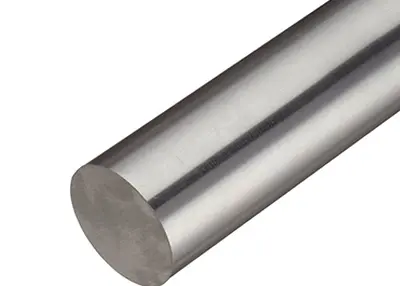 Inconel 718: A Superalloy with Lasting RelevanceOctober 12, 2023Metal 3D printing has finally catapulted Inconel, the classic nickel-based heat-resistant alloy, into the 21st century. Inconel 718, the hardened version of Inconel 625, is the latest addition to our growing range of metals for Direct Metal Laser Sintering (DMLS).view
Inconel 718: A Superalloy with Lasting RelevanceOctober 12, 2023Metal 3D printing has finally catapulted Inconel, the classic nickel-based heat-resistant alloy, into the 21st century. Inconel 718, the hardened version of Inconel 625, is the latest addition to our growing range of metals for Direct Metal Laser Sintering (DMLS).view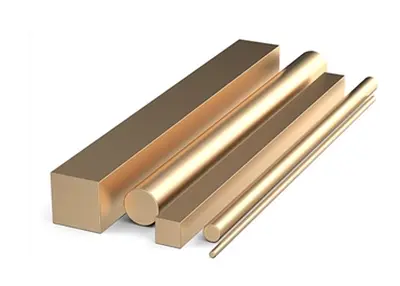 What Kind of Common CNC Metal Machining Technology Do You Know?August 10, 20221. CNC metal machining technology: selective laser meltingIn a tank filled with metal powder, a computer-controlled high-power carbon dioxide laser selectively sweeps the surface of the metal powder. ...view
What Kind of Common CNC Metal Machining Technology Do You Know?August 10, 20221. CNC metal machining technology: selective laser meltingIn a tank filled with metal powder, a computer-controlled high-power carbon dioxide laser selectively sweeps the surface of the metal powder. ...view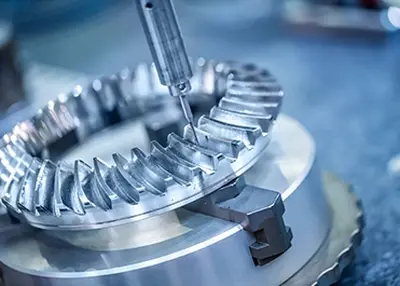 What is Metal Machining?November 3, 2023When it comes to shaping the world around us, few processes play as pivotal a role as metal machining. Whether you're a curious enthusiast or an industry professional seeking deeper insights, this article is your ultimate guide to understanding the essence of metal machining.view
What is Metal Machining?November 3, 2023When it comes to shaping the world around us, few processes play as pivotal a role as metal machining. Whether you're a curious enthusiast or an industry professional seeking deeper insights, this article is your ultimate guide to understanding the essence of metal machining.view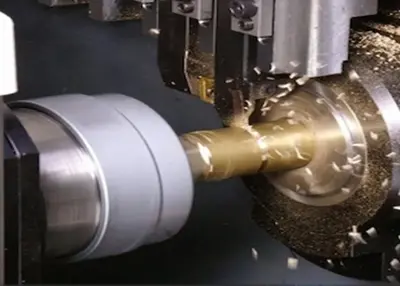 5-Axis CNC Machining: Faster Speeds and Higher PrecisionJuly 27, 2023One of the ambitious goals of the manufacturing industry is to complete processing in one go: putting a piece of material into a machine tool, running a program, and finally obtaining a perfectly Mach...view
5-Axis CNC Machining: Faster Speeds and Higher PrecisionJuly 27, 2023One of the ambitious goals of the manufacturing industry is to complete processing in one go: putting a piece of material into a machine tool, running a program, and finally obtaining a perfectly Mach...view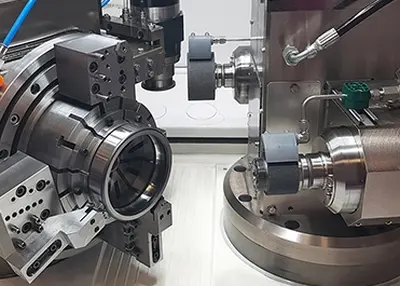 What kind of process is suitable for machining different types of parts?October 31, 2023Machining is a widely used manufacturing process and is one of the common machining methods used in the manufacturing industry for making different types of parts. Different types of parts require dif...view
What kind of process is suitable for machining different types of parts?October 31, 2023Machining is a widely used manufacturing process and is one of the common machining methods used in the manufacturing industry for making different types of parts. Different types of parts require dif...view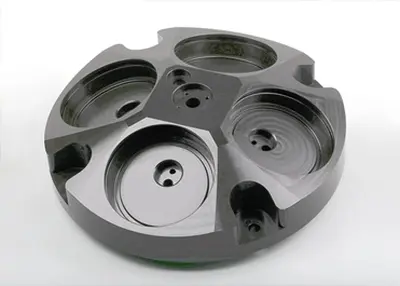 Understanding the Properties of Anodizing Process in One ReadingApril 4, 2023Nowadays, the use of metal technology is quite popular, and many machines in the market have large metal parts. One of the surface treatment processes for metal is anodizing, which is very commonly us...view
Understanding the Properties of Anodizing Process in One ReadingApril 4, 2023Nowadays, the use of metal technology is quite popular, and many machines in the market have large metal parts. One of the surface treatment processes for metal is anodizing, which is very commonly us...view
 EN
EN
 ru
ru 
